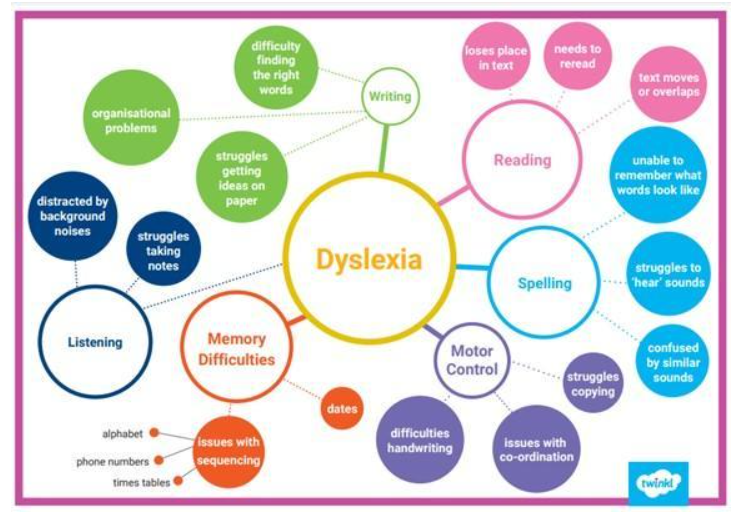The award is issued to schools or organisations that can demonstrate they provide high quality education and practice for dyslexic individuals. Obtaining the Quality Mark provides a framework for schools to improve their understanding of dyslexia and literacy difficulties and to develop strategies that support the achievement and engagement of dyslexic learners.
Becoming a dyslexia friendly school requires the involvement and engagement of all of those within the school, and a review of the schools’ approaches to teaching and learning; monitoring and assessment; differentiation; and high-quality practice across the range of ability and need.
What is Dyslexia?
Dyslexia is a difference in the way a brain works. People with dyslexia have strengths other than in literacy. They may be very creative or artistic, have good problem solving abilities or be good engineers or scientists. Dyslexia does not ‘go away’, but strategies can be successfully learnt to overcome the difficulties it causes.
Definition of dyslexia from the Dyslexia SpLD (Specific Learning Difficulty) Trust
Dyslexia is a specific learning difficulty that affects auditory memory and processing speed which impacts on literacy development, mathematics, memory, organisation and sequencing skills to varying degrees. Dyslexia can occur at any level of intellectual development. It is neurological in origin and is seen to run in families. It affects up to 10% of the UK population at some level and can affect anyone of any age and background. (Dyslexia SpLD-Trust March 2015)
Dyslexia can cause unexpected difficulties in acquiring certain skills in one or more of the following areas:


